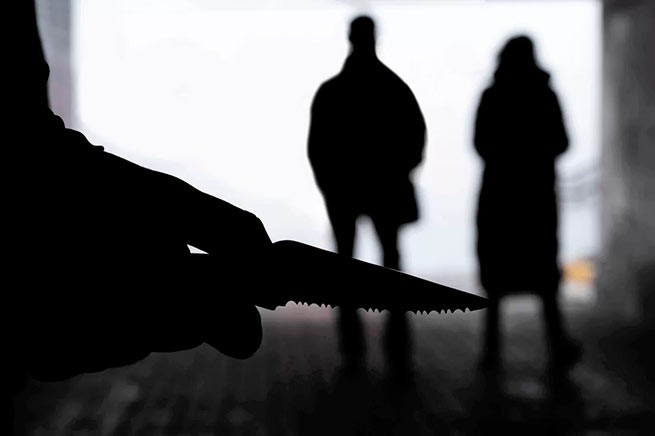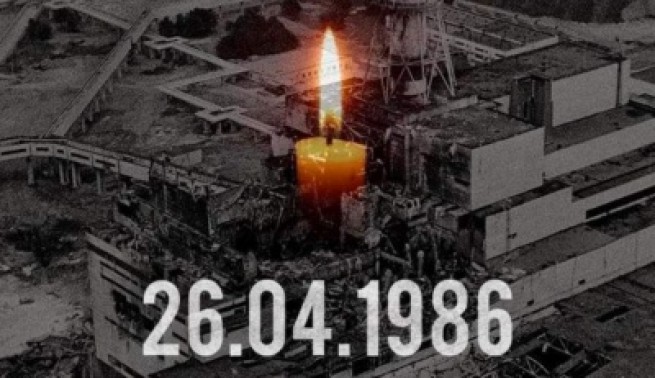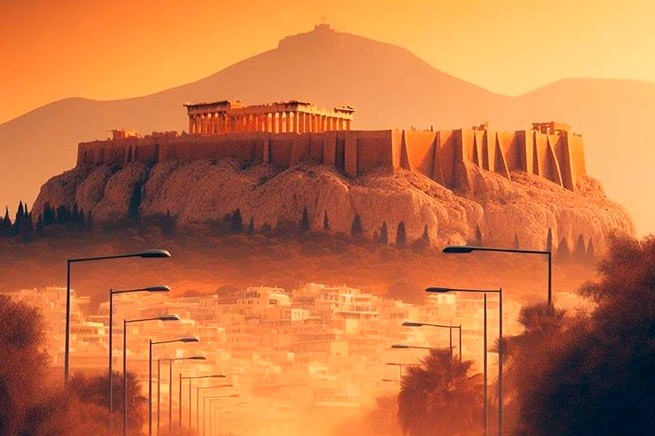Previously, Cyprus developed a special relationship with the Russians, and now it has joined Western sanctions, writes L’Espresso. Local residents do not know what to do now, because it was the Russians who were ready to spend a lot on vacation and invest in long-term projects.
Instructions for survival in the face of anti-Russian sanctions include three points. Catherine can count them on her fingers:
- through Telegram, you can enter the black market for the exchange of euros and rubles;
- you can get to your homeland in the conditions of restrictions on flights with a transfer in Serbia and Georgia;
- if a bank account is frozen, there is a whole network of lawyers you can turn to to help unlock it.
“But this is only for citizens whose only fault is that they have a Russian passport. Even during the events in Crimea, the oligarchs learned how to protect their wealth from sanctions,” the woman comments. Behind her, palm trees destroyed by the wind and 40-degree temperatures – the war zone is far away, but the consequences of the conflict were not long in coming in Limassol, the second largest city in Cyprus.
On the embankment there is a lot of evidence that the city has rightfully earned the title of “Mediterranean Moscow”. Cyrillic inscriptions on kiosks, motor boats with names like “Sputnik” and “Kirill”, cashiers in supermarkets announcing the amount to be paid in Russian – because of all this, you get the feeling that you are in a Black Sea resort, and not in the Mediterranean.
Limassol, with a Russian-speaking community of 50,000 people, is a monument of friendship between the small island and the Russian giant: for several decades, Cyprus has developed a special relationship with investors and tourists from a distant country. But now a member of the European Union has joined the policy of sanctions against Moscow, and the fate of the community and the economy that used to rely on it now hangs in the balance. “How will we be without Russians?” is the question that walks around the bazaars. Meanwhile, residents with dual citizenship, caught in the grip of European sanctions and restrictions in their homeland, are thinking about their own future.
“For many of us, Cypriot banks froze our accounts as a precautionary measure,” says Ekaterina S. Ten years ago, she emigrated from St. Petersburg to Cyprus, and now she has her own restaurant here. The interlocutor allowed to indicate only her name. “The luckiest ones have transferred money to other states, to Bulgaria, for example, and are thinking about leaving.” To get around the blocking of money transfers between the two countries, many are turning to the black market in Telegram. “I am selling 100,000 euros for rubles,” a woman reads messages aloud in the group. “Euros in exchange for rubles, urgently,” another ad says.
After the start of the conflict in Ukraine, a group of people walked along the embankment in solidarity with their homeland. Then the community fell silent. The most popular radio station, RussianWave, continues to play songs by pop artists beloved by Russians, but refuses to comment. Vestnik Kipra, a cultural organization that publishes a newspaper in Russian, has the same approach. The festival of Russian-Cypriot culture, which, like in previous years, was supposed to revive the city, was postponed indefinitely. “It was a shock: until some point we were loved, and now they treat us like a black sheep. And we have the citizenship of Cyprus, and this island is our home,” says Ekaterina.
Many of the black-and-white photographs that are sold among the knick-knacks at the Limassol bazaar tell of Aphrodite Island’s links to Moscow. Faded postcards of young people posing in Red Square show how the influential Cypriot Communist Party, based in Limassol and to this day a second political force, developed cultural exchanges between the two countries. Relations strengthened after the collapse of the USSR: the island fell in love for tax benefits, and when the Bank of Cyprus went bankrupt after the Greek debt crisis, the state encouraged Russian savers to invest their savings in real estate.
However, the “golden passports” played a decisive role. Thanks to a government initiative that was blocked in 2020, citizens who invest more than 2.5 million euros in the island could receive Cypriot citizenship, that is, a European passport for themselves and their families. Almost seven thousand people took part in the program, half of them are Russians.
“Everything is possible: we are in Cyprus,” the politicians argued, unaware that they were filmed as part of the Al Jazeera investigation, because of which the government was forced to cancel the program two years ago – after it turned out how many passports sold illegally. According to an independent commission charged with investigating the scandal, a third of the passports were issued despite not meeting the necessary criteria. Since then, the government has declared its willingness to clarify and dedocumented 39 people. In April, four oligarchs who were sanctioned by Brussels were stripped of their Cypriot citizenship, among them the chairman of the board of directors of the Moscow airport, Alexander Ponomarenko. Another confirmation that the conflict in Ukraine has mixed all the cards is the cessation of financial operations of the island’s fourth largest bank, Russian Commercial Bank, half of which was owned by VTB before the outbreak of hostilities.
While Russian troops were advancing in Ukraine, Finance Minister Konstantinos Petrides assured that Cypriot banks would not suffer from retaliatory measures, but Russia is still the country’s main economic partner. More than 25% of foreign investments come from Russia. It is enough to take a walk along the embankment to notice the first consequences of this addiction: the offices of tax specialists and lawyers, accustomed to working with Russian clients, have closed, and the famous sign with the inscription “Limassolgrad”, as the city was nicknamed, dangles from the building that once housed real estate offices.
Before the cessation of air traffic between the two countries, tourists from Moscow were the second largest after the British, but most importantly, they were the most willing to spend. Now the shuttles running along the embankment with stops bearing the names of local hotels have a lot of empty seats. “Only Russians can spend 100,000 euros at a time,” says jewelry salesman Marinos Dimitriou, displaying a chic waterproof watch. “I doubt I’ll be able to sell it this summer.” According to government estimates, due to insufficient Russian arrivals, the island could lose more than 600 million euros.
“This is some kind of joke: tourists who are not allowed to visit the island will go to neighboring Turkey. This country has occupied the northern part of Cyprus for almost 50 years,” comments Haris Theocharous, chairman of the Limassol Hoteliers Council. of course, we are in solidarity with Ukraine, but our small island pays a disproportionate price compared to other European countries.”
In the first months, the hotels were filled mainly with Ukrainian refugees. In the vicinity of the capital Nicosia, five gilded domes brought from St. Petersburg sparkle in the sun. The Orthodox Church of the Apostle Andrew and All Russian Saints was built with the money of one magnate. The temple became a meeting place for the entire Slavic community of the island. Families who have arrived from Kyiv are playing in the yard. Father Isaiah wanders among them and generously dispenses blessings. “Before the conflict, no one made a distinction between Russians and Ukrainians: everyone prayed in the same language. We try to continue doing this, but the longer the conflict lasts, the more difficult,” he notes.
While the inhabitants of the island are pondering how long the conflict will last, finding a free apartment in Limassol is becoming increasingly difficult. Since the beginning of the special operation, more than 20,000 people have arrived on the island: Ukrainian refugees and employees of Russian companies headquartered in Cyprus, which are transferring their employees here. The future of relations with a longtime ally is still unknown. “The island relies on other investors, Lebanese and Israelis, but the Russians provided more stability. They were more interested in financing long-term projects, such as universities and hospitals,” says Pavlos Loizou, managing director of real estate market analyst Wire. “Will someone take their place? It’s too early to tell now.”
As cruise ships pass off the coast of Limassol, the small island, once landed by the Venetians, the Templars and the British, is waiting to see who will be the next foreigner to come ashore with ambitious projects and, above all, cash.







More Stories
Today the world remembers the accident at the Chernobyl nuclear power plant
Poll: which European countries are ready to defend their homeland to the last
K. Mitsotakis announced readiness for the fire season